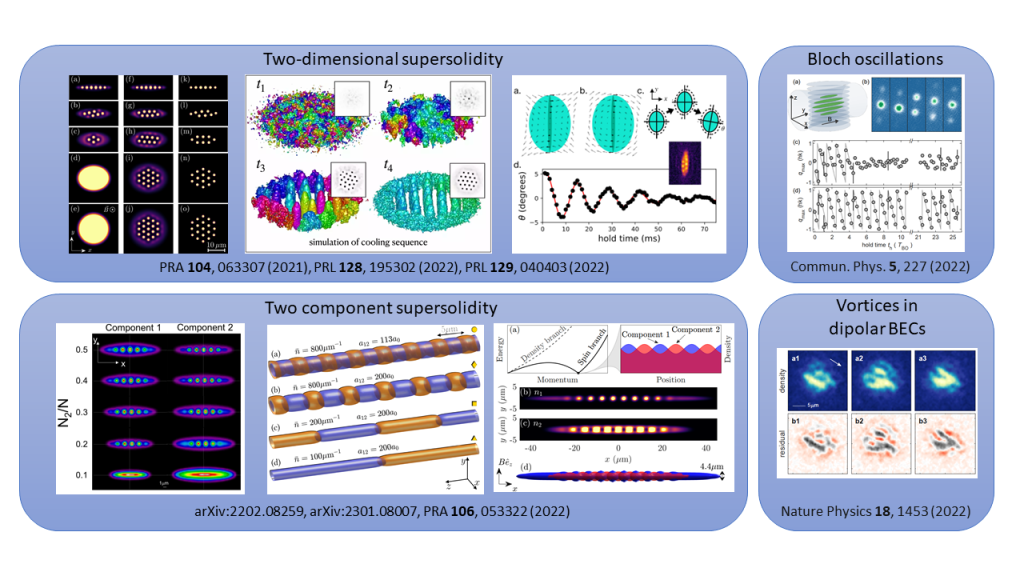Claudia Politi and Gabriele Natale obtained their PhD in May 2023 and are now heading to ETH Zürich to work respectivly in the groups of Prof. J. Home and Prof. T. Esslinger. We wish you great succes in your next adventures in physics!
Center for Ultracold Atoms and Quantum Gases, IExP and IQOQI, Innsbruck
Quantum Science Austria
University of Innsbruck, University of Vienna, Vienna University of Technology, University of Linz, IST Austria, Austrian Academy of Sciences
The Second Quantum Revolution – the breathtaking development of modern quantum science – would not have been conceivable without the pioneering contributions from Austria. Based on them, quantum technologies are being developed today that surpass classical technologies in many areas. The Cluster of Excellence Quantum Science Austria, which has now been approved by the Austrian Science Fund FWF, is advancing basic research in the quantum sciences, aims to expand the frontiers of knowledge and thus be the engine for future innovations. The focus is on fundamental questions regarding the quantum nature of space, time and gravity, new paradigms in quantum information science and the physics of quantum many-body systems. The scientists* in Innsbruck, Vienna, Linz and Klosterneuburg are asking innovative fundamental questions that can only be solved by combining the unique know-how available in Austria. With well-controlled model systems based on trapped ions, ultracold atoms, long-range interaction systems, photonic systems, superconducting quantum circuits, and nanoscopic solid-state systems, they aim to unravel the most challenging puzzles of the quantum world.
 *This position is now closed* – 01/04/2023
*This position is now closed* – 01/04/2023
The position of a 1-year Postdoctoral Researcher is now open to applications. The successful candidate will join Dr. Thomas Bland and Prof. Francesca Ferlaino at the University of Innsbruck, Austria. The work concerns the question: “How ‘solid’ is a dipolar supersolid?”
Following the observation of supersolidity in Bose-Einstein condensates comprised of atoms with a significant dipole moment four years ago, much research has focused on exploring the superfluidity of the crystallised state. Here, we wish to investigate the solidity of the state, by probing solid properties of the material, such as shear, strain, and the plasticity. A PhD in Physics or a closely related field is required (or be close to completion). Candidates with an expertise in numerical and computational methods to tackle quantum many-body and mean-field theory are especially encouraged to apply. The expected start date is no later than September 2023. The Gross salary for a Postdoctoral Researcher under the FWF is 56k€ per annum. Check https://www.fwf.ac.at/de/forschungsfoerderung/personalkostensaetze for up-to-date information and an Austrian Gross-Net calculator. Interested applicants are encouraged to contact Dr. Bland directly (email: thomas.bland@uibk.ac.at) and provide the following: a cover letter with a brief description of research interests, a CV including a full list of publications, and the contact information of two references. Review of applications will begin immediately and continue until the anticipated position is filled.
Further information is available at: thomasblandphysics.com